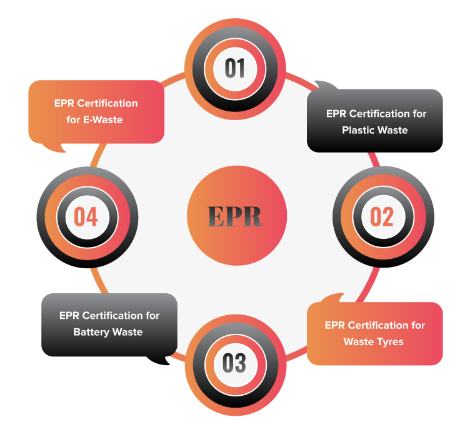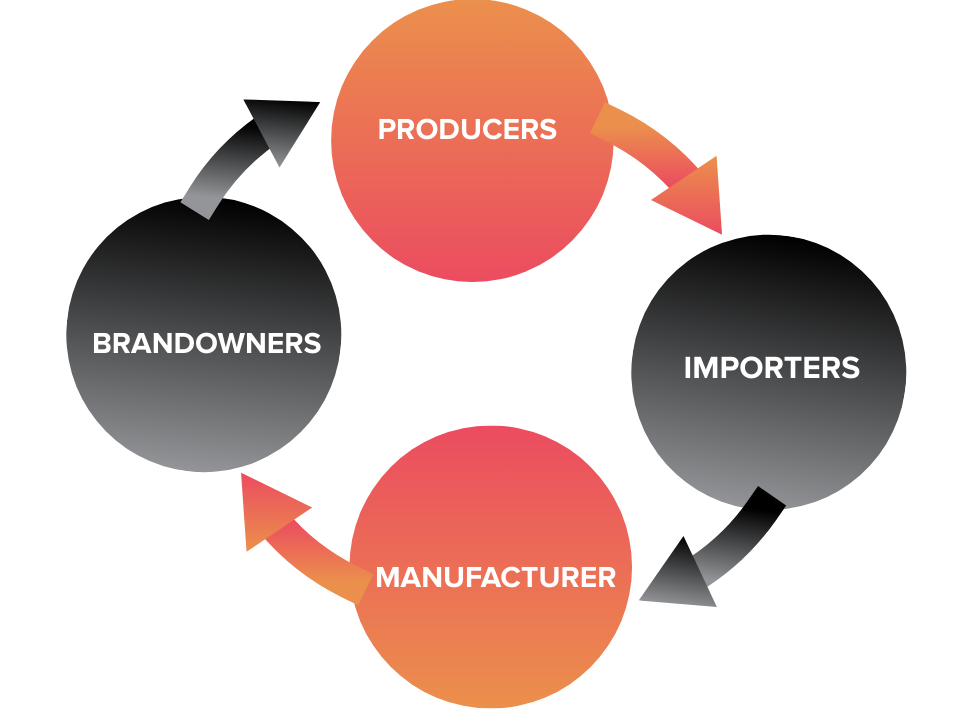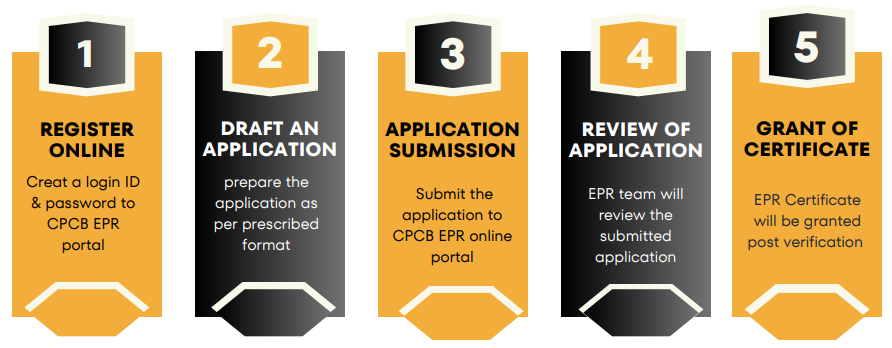Extended Producer Responsibility is referred to as EPR. Producers, importers, brand owners, and manufacturers who are involved in the production of items that generate e-waste, plastic trash, battery waste, or tire waste are required to register for EPR under the EPR Rules of India. To make up for the trash their products have created in the marketplace, they must get an EPR certificate. The polluter pays theory is the basis of this policy. The EPR Certificate ensures that the Producers, importers, and business owners follow sustainable development and help reduce the waste from the economy.

Manufacturers must get an EPR authorization, eliminate any waste they have created, and report the results to the CPCB annually. As a result of this, the federal and state governments are relieved of some of their as they are no longer concerned with the time and resources that the trash management process will require. If any such organisation or individuals who are supposed to take the EPR Certificate and comply with the EPR norms do not follow the same, they shall be liable for a fine.


 EPR Certificate for E-Waste Management
EPR Certificate for E-Waste Management










